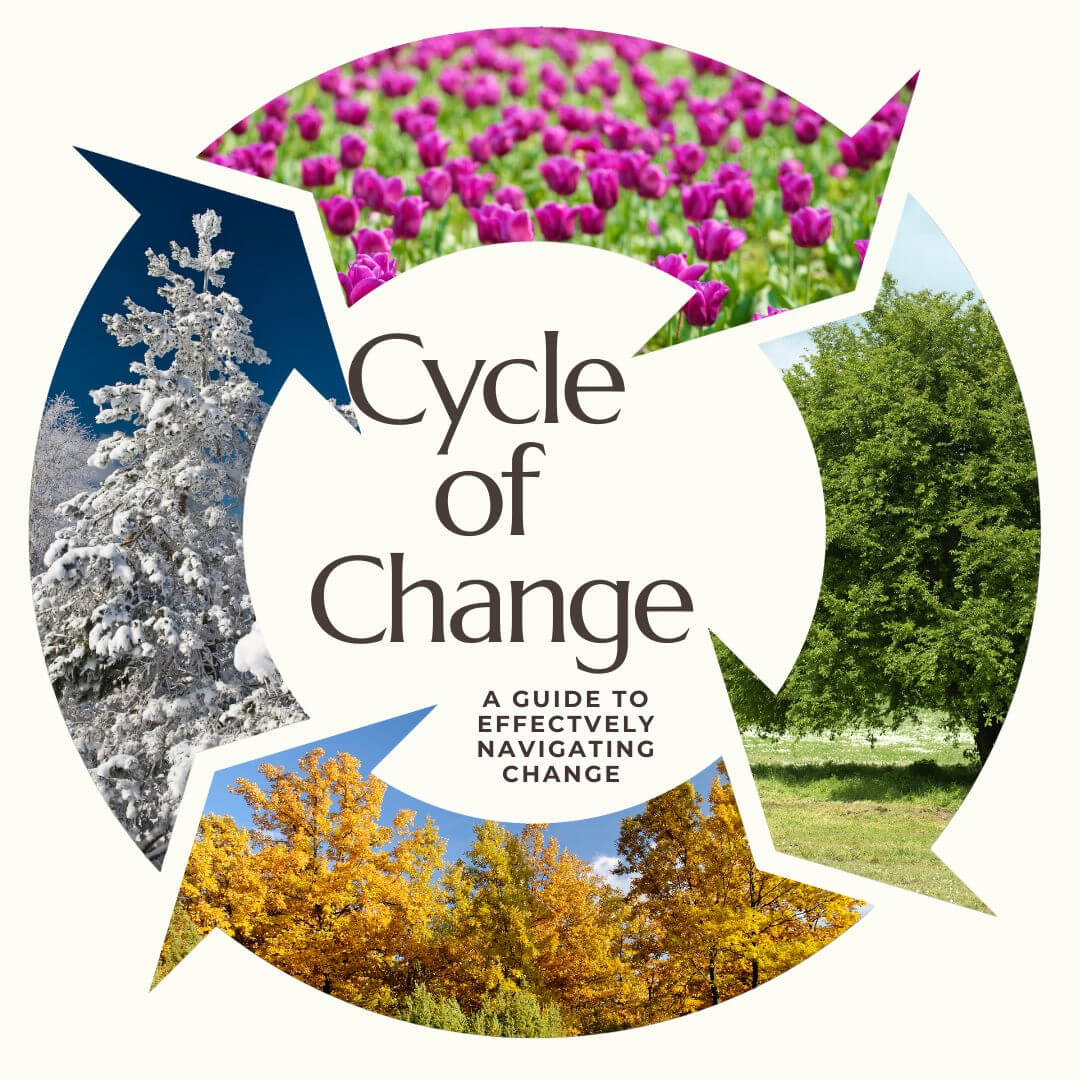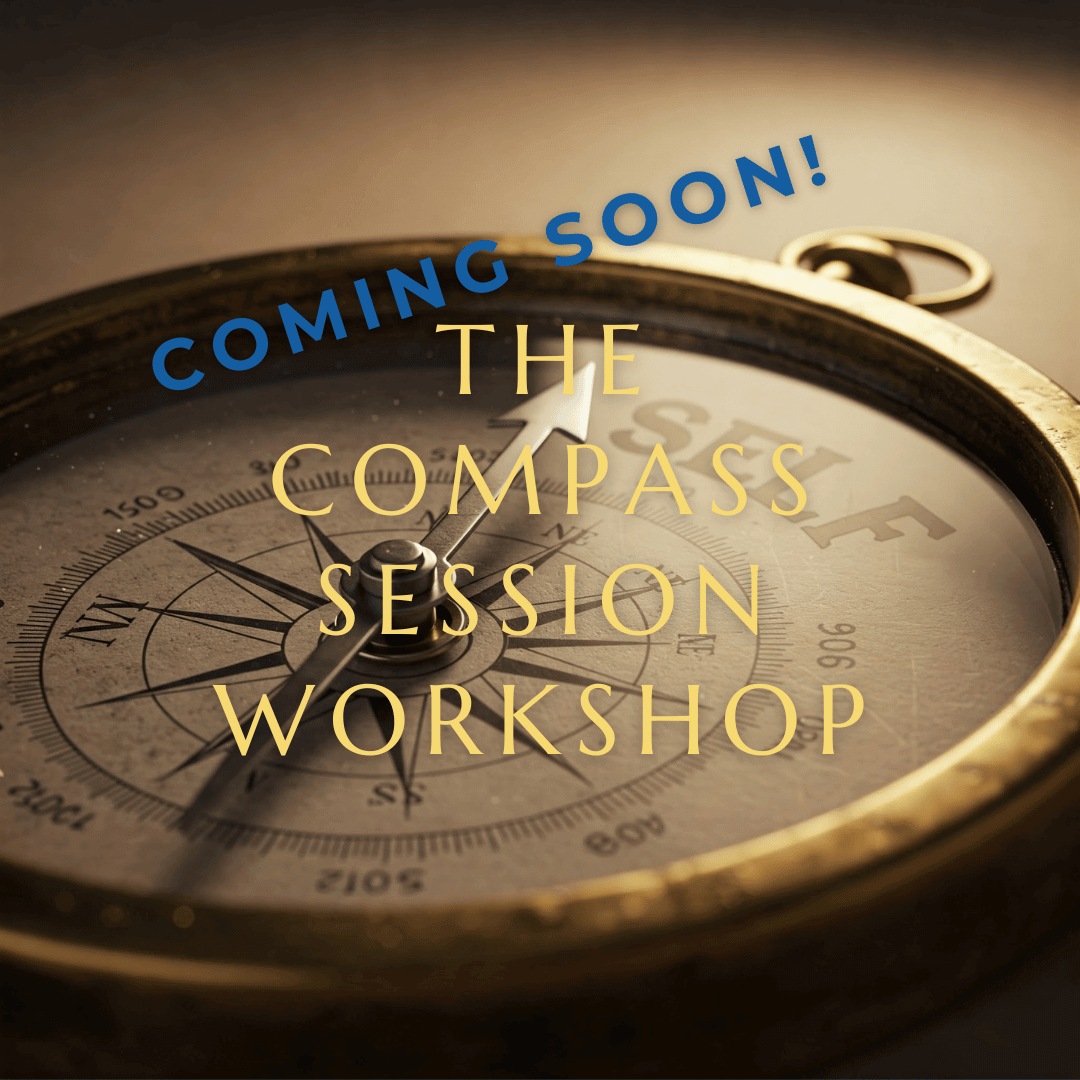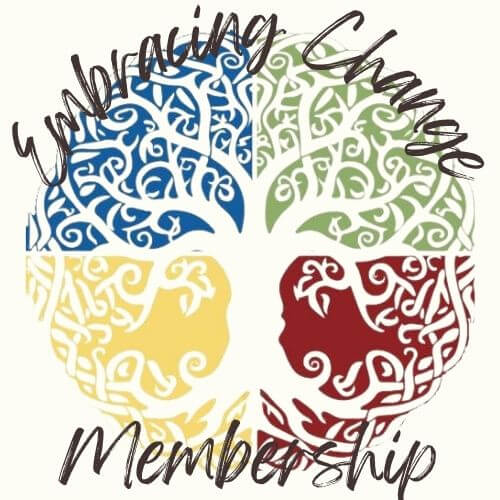
Have you ever felt completely lost and directionless because of a major life change? Whether that change is career, relationship, or health related, it can have a very deep impact on you and your sense of identity. It could be as simple as a moment when you look in the mirror and think, "Who is this person?" As if the person you once were has vanished. When you reach that crossroads of not quite recognizing yourself as the person you once were, most of us struggle because we feel an overwhelming sense of grief for a life we once had, and we are fearful because what lies ahead is now completely unknown.
I understand all too well how that feels. Years ago, I was feeling all of those things when I found myself navigating multiple major life changes within a year. The "me" I had known for years was disappearing, and that left me feeling adrift in my life. I was grieving for the identities I was losing, and I didn't have a clear vision for my future. My lack of answers was a silence in my mind that was deafening, and the uncertainty of my path forward was scary.
Unfortunately, in those moments, when our Self is unsure, we're often bombarded with unspoken rules and common beliefs about how we should be living, feeling, or even the person we should be living as. But what if many of these widely accepted and normalized ideas are actually myths? What if when we mistakenly follow them, we actually hold ourselves back from the very fulfillment in life that we crave?
I know it's not easy. Which is why I do what I do. I love to learn. I love to share what I learn. I love to put knowledge out into the world that can help make life a little easier for people who are struggling. This post will expose five powerful myths and reveal the liberating truths that can help you embrace a more authentic, purposeful, and joyful life.
Now, if you've been following along on the blog, these misconceptions will look familiar to you, but it's always nice to have a more concise, "here it is" resource. If you haven't been around, don't worry, I will link each of the blog posts that the mistaken belief can be found in. We will be looking back at: the power of the pause, emotional mastery, redefining our relationship with ourselves, and re-aligning our purpose in this season of life.
When we get to the end, if you're interested in information on how to work with me more, I will offer you an opportunity to sign on to my interest list. But if not, you will still have 5 debunked myths with opposing truths on how to design a life you desire. Let's get started.

In a culture that glorifies the constant hustle, the thought of hitting the brakes can feel like a one-way ticket to failure. It's ingrained in us that pausing, resting, or stepping away means we’re weak, lazy, or losing our edge. The pressure to always be "on" is immense. But what if that’s a mistake?
The truth is, taking a strategic pause is purely an act of self-preservation and clarity. It’s not weakness. It is a profound strength that allows for re-alignment, prevents burnout, and fuels sustainable growth. As I wrote about in a previous post on the power of the pause, ignoring this need not only can lead to burnout, but also to emotional collapse. My own journey showed me that stepping back for a cognitive reset was, in reality, my fastest way forward.
“The soul always knows what to do to heal itself.
The challenge is to silence the mind.”
- Lalah Delia
Remember that a break isn't a setback. It's an opportunity to reset and realign your trajectory. When you honor your need for rest, you’re making a conscious choice to fuel sustainable growth and prevent burnout. It helps me to think of it as if I'm an arrow being pulled back on the bow and taking aim at where I'll move forward to.
Pausing is an act of proactive self-care, not a sign of failure. It’s an essential step in finding your way forward.

Job changes, ending a long-term relationship, or becoming an empty nester in some ways can feel like a cruel trick. A long-term role of yours, which has been a foundational piece in your identity, has been ripped out from under your feet. When this happens, we often cling to that past version of ourselves—the successful professional, the devoted spouse, or the primary caregiver.
This is more than just experiencing a change in our life. It is a key piece of how we related to ourselves. It's how we tend to identify who we are as people and the kind of people that we are. Also, there’s an underlying belief that our core identity is set in stone and any shift can feel like a profound crisis or a betrayal of who we once were.
The truth is, your identity is not a monument. Your identity is a river. As you go through life you evolve and so do your passions, values, and purpose. When we continue trying to fit into that old mold, it's exhausting and inauthentic. Learning to embrace your continually evolving self allows for genuine growth and newfound passions, meaning you can make your life the most authentic it's been.
“The only way that we can live is if we grow.
The only way we can grow is if we change.
The only way we can change is if we learn.
The only way we can learn is if we are exposed.”
-Heraclitus
Remember this, your identity is not a thing you find, but something you create. You have the power to step into a new, more authentic version of yourself.
 Myth 3: "Emotional Regulation Means Suppressing or Ignoring Your Feelings."
Myth 3: "Emotional Regulation Means Suppressing or Ignoring Your Feelings."Many of us were taught, indirectly or directly, to "be strong," "don't cry," or "get over it." These implicit lessons teach us to believe that managing our emotions means stuffing them down, pretending they don't exist, or allowing them to fester beneath the surface. We see tears as a sign of weakness and expressed anger as a negative emotion to be avoided at all costs. This mistaken belief leaves us emotionally numb, resentful, or a powder keg of emotional issues.
The truth is, true emotional regulation is about skillful awareness and intentional response, not suppression. It's acknowledging your feelings, understanding their signals, and then choosing how to act from a place of clarity, rather than reacting impulsively. Mastering regulation allows your emotions to fuel your purpose, not derail it.
“What you resist, persists.”
- Carl Jung
Remember this, you don't need to be strong enough to suppress your emotions. You need to be strong enough to feel them and navigate them with wisdom. This is where true emotional power lies.

When you hear the term "self-care," do you picture bubble baths, spa days, and retail therapy? While those things can be nice, they often miss the point entirely, because that self-care is something that's been commodified into a fluffy, guilt-inducing luxury. Then many people feel they don't have the time or money to indulge in it, or they believe it's superficial and not a priority during a tough transition.
The truth is, self-care, at its core, is about nurturing a deep, respectful partnership with yourself. It’s about listening to your needs (physical, mental, emotional), setting boundaries, practicing self-compassion, and advocating for your own well-being. It's the foundational relationship that empowers all others and sustains your purpose. As I wrote about in a previous post on our relationship with self, it's an essential part of living a full and meaningful life.
"You cannot serve from an empty vessel."
- Eleanor Brownn
Remember, self-care isn’t a luxury. Self-care is a survival tool for thriving through change. It’s an investment in your ability to live a purposeful, authentic life.

We have been conditioned to believe that a packed schedule, constant activity, and the feeling of being perpetually "busy" are direct indicators of a purposeful and fulfilling life. Basically, if you're not busy, you're not important. You might even find yourself, consciously or unconsciously, filling your days to avoid the quiet moments during a major life transition. Busyness can feel like a comfortable distraction from the fear, grief, and uncertainty that you don’t want to face.
The truth is, fulfillment doesn't come from doing more, but from aligning with what truly matters. It comes from prioritizing meaning, deep connection, presence, and intentional choice over constant activity. Often, achieving true fulfillment means strategically doing less of what drains you, to make space for what nourishes you. Your value isn't in how much you do, but in how intentionally you live.
“I'm so glad I live in a world where there are Octobers.
It's a beautiful, gentle season to remind us that life doesn't always have to be lived at a frantic pace.”
- L.M. Montgomery
Remember, your fulfillment is waiting for you in the clarity that comes from choosing purpose over pointless activity.
These five myths are powerful because they are often deeply ingrained. They are the unwritten rules we’ve all been taught to follow. But by recognizing them for the powerful lies we’ve been sold, you can begin to reclaim your power and design a life that truly lights you up.
You have the wisdom, the experience, and the capacity to shed these outdated beliefs and embrace a liberating new way of living. The path ahead may not be what you expected, but it can be more purposeful and joyful than you ever imagined. By embracing these truths, you will move from feeling rudderless and lost to feeling empowered and full of purpose.
If you're ready to move past feeling lost, fearful, and adrift,
and want more information about how to "Pinpoint Your Purpose & Path,"
then I invite you
Adding your email to the interest list will let me know there is genuine interest in a course like this,
and it guarantees you'll be among the very first to know when enrollment details and more information are released.
Until next time, take care of you and yours,
Casey
I’m so glad you spent a few minutes here with me today. If this sparked a thought or a seed of an idea you're sitting with, pull up a chair and leave a comment below. I’d love to keep the conversation going!
And remember, you don't have to navigate these changes alone. You can find more science-backed strategies and soulful reflections at the Life Transition Resource Center. Let’s find your calm in the chaos together.














0 Comments